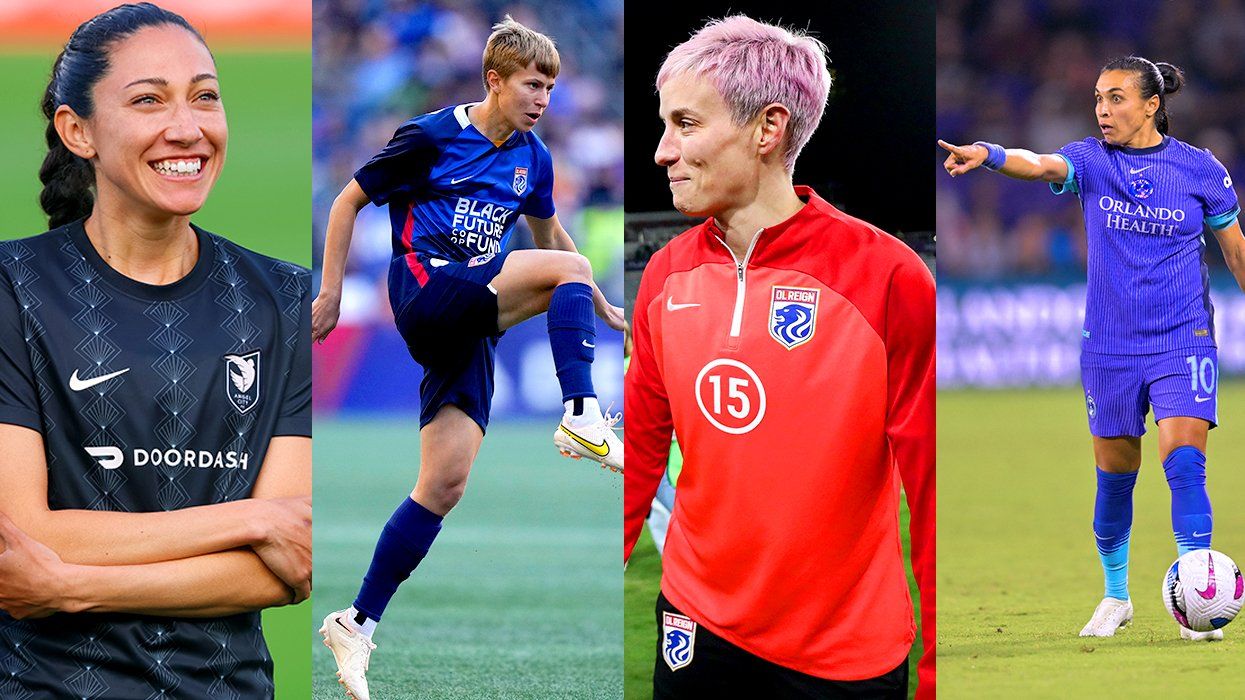As part of our effort to profile more authors within the LGBT community, we present Janet Mason.
Janet is the author of Tea Leaves, a memoir of mothers and daughters published by Bella Books. She grew up in Levittown, Pennsylvania, and is an award-winning writer of poetry, fiction and creative nonfiction whose literary commentary is regularly featured on This Way Out, an international LGBT radio syndicate based in Los Angeles and aired on more than 400 radio stations in the U.S. and abroad. Janet lives in Philadelphia with her partner Barbara where she teaches creative writing.
Tea Leaves is a lesbian-telling of the story of mothers and daughters, embarking when the narrator's mother is diagnosed with fourth-stage cancer. A dutiful daughter, the narrator proceeds to take care of her mother, 74-year-old Jane, and enters a deeper understanding of her own life through her mother’s stories. Her grandmother (born in 1899) was a spinner in a textile mill and white glove wearing lady of her generation, her mother (born in 1920) was an office worker and feminist ahead of her time. The narrator has taken the foundation of her mother’s life and forged her own – taking her mother’s feminism one step further in becoming a lesbian and becoming the first in her family to graduate from college. Tea Leaves is a story of gender and class, identity and sexuality. Equally pressing is the sheer labor of dealing with medical misdiagnosis and subsequent treatment of her mother, and the toll it takes on her own relationship as she spends increasing hours in conversation with the woman who gave her life.
Here is an excerpt from Tea Leaves, which is available from Bella Books. You can learn more about Tea Leaves and Janet Mason on her author blog.
Two weeks after her hunger strike as we sat together in the living room, my mother told me she wanted to take a walk. It was a beautiful sunny day. Lips pressed together in a firm resolve, she leaned forward, grasping the rounded end of her wooden cane and pushed herself up from the chair. She walked around the end of the couch toward the stairs where she braced herself against the wall with her left hand. With precise determination, she used the straight end of the cane with the rubber stopper to retrieve first one sneaker and then the other.
Every muscle in my body twitched in her direction. I checked my urge to get her sneakers, to help her put her feet into them, to do the things for her that had become difficult but that she was still able to do for herself. Suddenly she was the child and I the mother. I needed to let her do this for herself, to not hover anxiously above the child taking her first steps, or the mother taking what could be her last. She let me go. Now it was my turn.
She held back the tongue of her gray and white running sneaker with her cane, slipped her right foot into the shoe, then pushed down the Velcro tabs with her cane.
Before she started with the second sneaker, she looked up, a gleam of satisfaction in her eyes.
“I always thought,” she said, in a thoughtful, faraway voice that sounded as if she were talking as much to herself as to me, “that I could’ve been a lesbian.”
I looked up, startled.
As she stood next to the stairs, leaning both hands on her cane, she looked at me keenly, as if looking into my life and beyond, back into hers.
“You remember my friend Mary from the organic gardening club. I think we would have been lesbians if we had the chance. One day she asked me if I liked sex. I think if it had been another time, we would’ve just done it. What’s the big deal about sex? America is so puritanical. I think that’s why the big fuss about gay rights.”
My mother stepped out with her left leg, shifting the weight that she was leaning on her cane. She braced herself against the wall again, reaching out with the cane to retrieve her other sneaker. After she pulled it over next to her foot, she looked back up at me.
“Don’t get excited,” she said. “We didn’t do anything.” She looked down at her sneaker.
A smile was curling the edges of my lips. I thought about mentioning the difference between “Do you like sex?” and “Would you like to have sex?” But I didn’t.
My mother looked up, her eyes narrowed to the pinpoint of a precise memory. “Now Vera, the woman who was in my nursing program, she was something special.” My mother looked past me, far into the distance. “She had nice broad shoulders like your father. And boy was she interesting to talk to. She walked like a man, her feet pointing to the outsides. She didn’t pretend to be anything she wasn’t, so everyone knew she was a lesbian.
“None of the other women wanted to have anything to do with her, even the other black women. They were all cats. But I liked her. When you listened to her talk you knew she had something between her ears. She really knew how to think for herself. When she put her hand on my knee, I didn’t say anything. I just pushed her hand away like I would do to a man. Poor woman, I was probably the only one in the program who had a kind word for her.”
My mother’s eyes reddened, and she looked down. Again at her sneaker. Putting on her shoes, this daily incidental that had become a monumental task.
I had heard the story of Vera before, about the hand on the knee, a reminder in my preadolescence, when lesbianism was still a foreign concept, that all people should be treated fairly, with respect, like the human beings they are. But today my mother’s reminiscence put Vera in sharper focus for me, this broad-shouldered black lesbian, this woman ahead of her time who, despite the small-minded women in the nursing program, despite the closed doors of the fifties, could risk breaking all taboos, to place her hand on the knee of a straight, white, married woman, who at forty years old was pregnant with her first and only child.
I imagined myself in my mother’s womb, a place I have never dared to think of, curled up tight, growing larger in the amniotic fluids that transmitted the touch of Vera’s hand on my mother’s knee, perhaps feeling a flutter of excitement, then the light brush of my mother’s arm across her stomach, sweeping away Vera’s hand, keeping all that she was expected to be in place. It’s quite possible that in 1959, the desire that was dormant or repressed in my mother was handed to me, a gift embedded in the vibrational frequency that formed me.
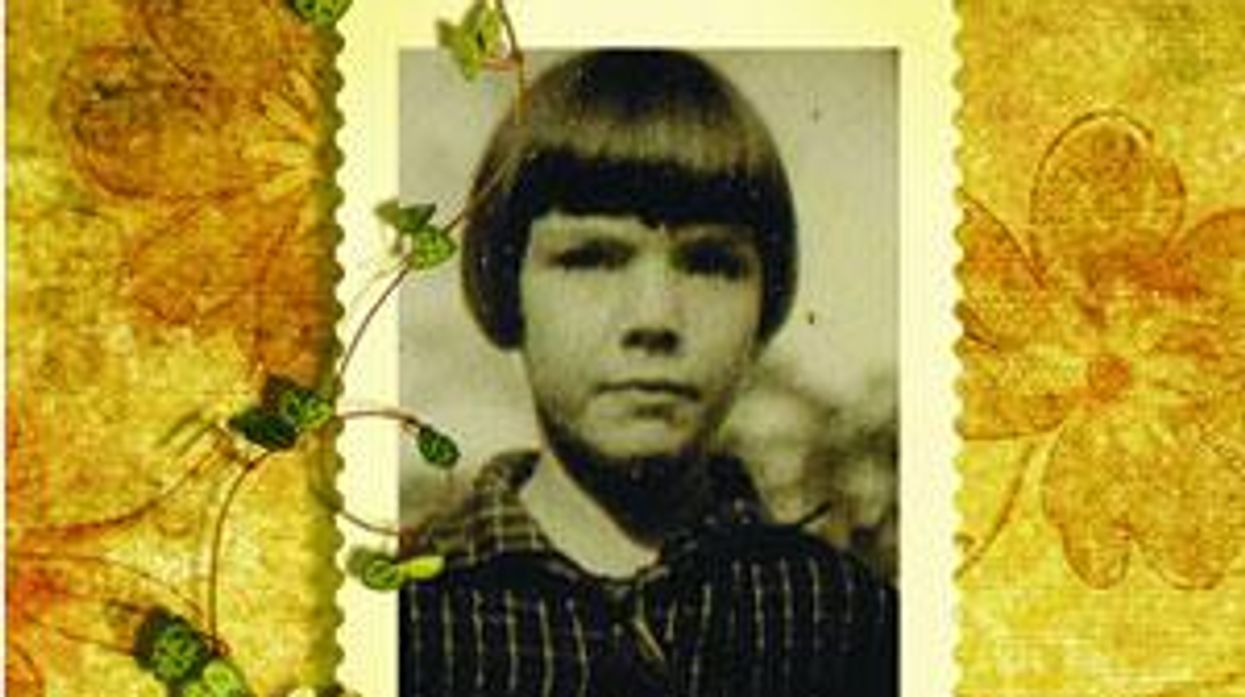



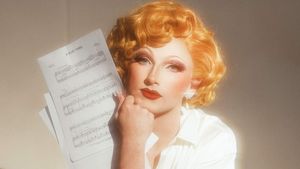

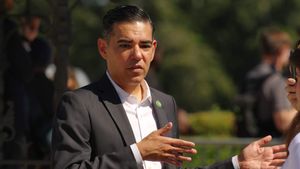

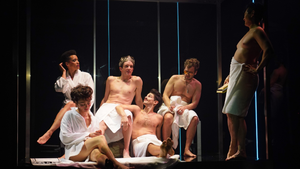



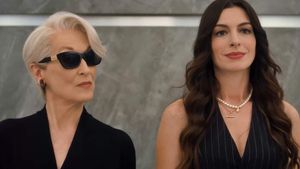
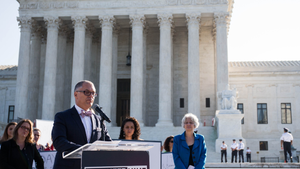





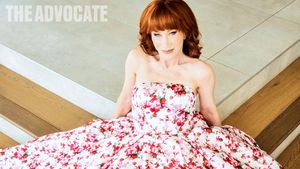




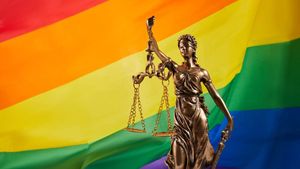

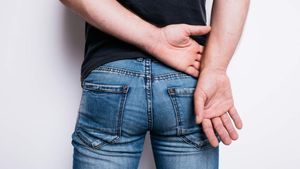




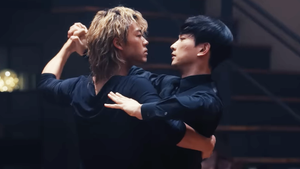











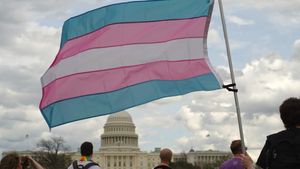
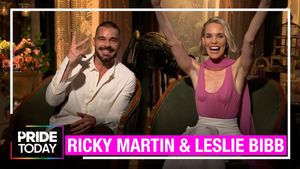



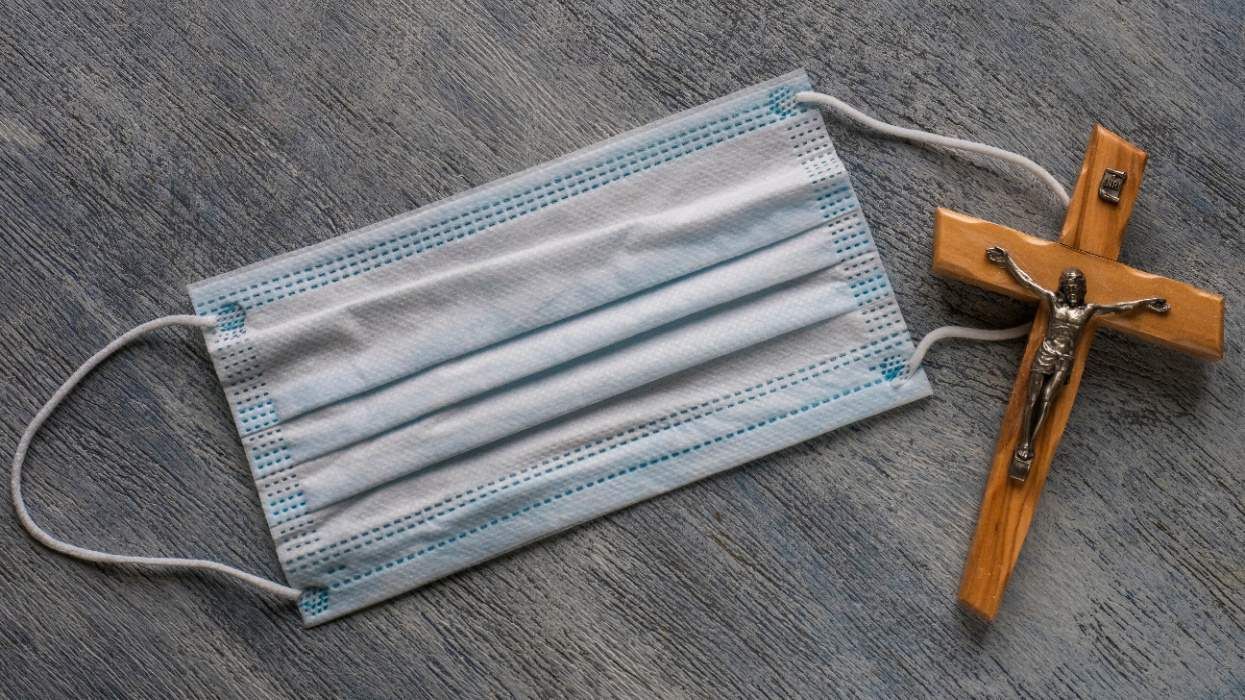
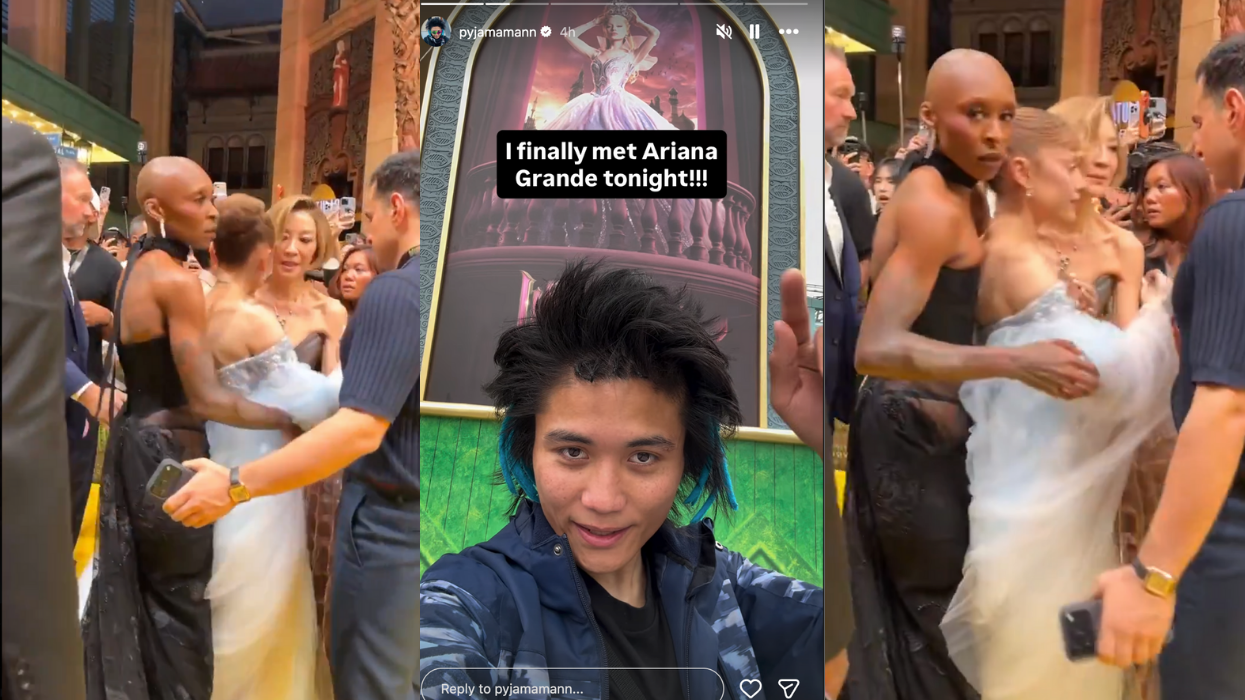






























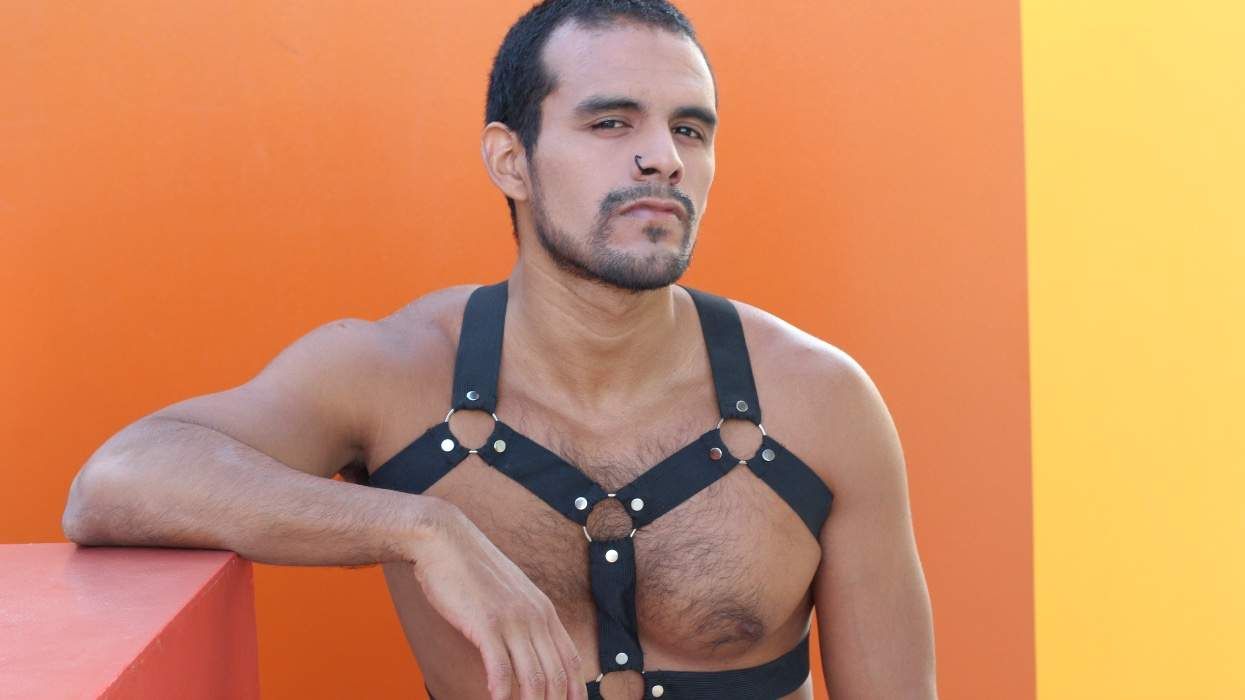






 Cindy Ord/Getty Images
Cindy Ord/Getty Images
























